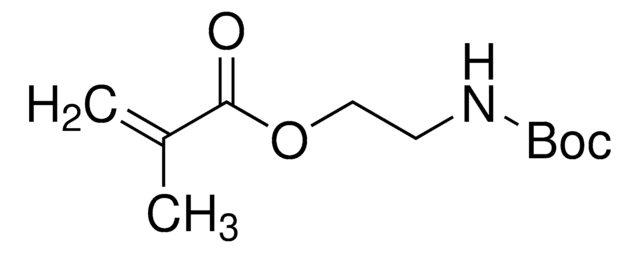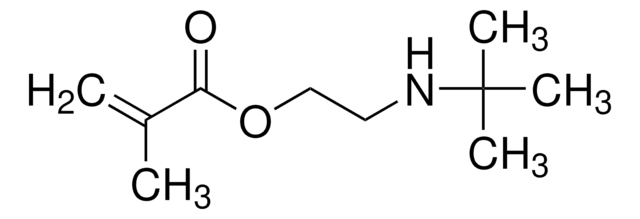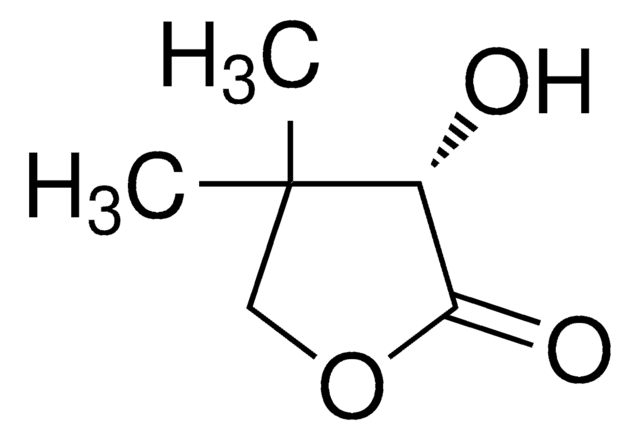900652
2-Aminoethylmethacrylamide hydrochloride
≥98%
Synonym(s):
N-(2-Aminoethyl) methacrylamide hydrochloride, AEMA
Sign Into View Organizational & Contract Pricing
All Photos(1)
About This Item
Empirical Formula (Hill Notation):
C6H13ClN2O
CAS Number:
Molecular Weight:
164.63
MDL number:
UNSPSC Code:
12162002
NACRES:
NA.23
Recommended Products
Related Categories
Application
Monomer for polymerization reactions, may be used to synthesize polymers for nucleic acid complexation and polyplex formation.
Storage Class Code
11 - Combustible Solids
WGK
WGK 3
Flash Point(F)
Not applicable
Flash Point(C)
Not applicable
Certificates of Analysis (COA)
Search for Certificates of Analysis (COA) by entering the products Lot/Batch Number. Lot and Batch Numbers can be found on a product’s label following the words ‘Lot’ or ‘Batch’.
Already Own This Product?
Find documentation for the products that you have recently purchased in the Document Library.
Customers Also Viewed
Wei Sun et al.
Chemistry (Weinheim an der Bergstrasse, Germany), 13(27), 7701-7707 (2007-06-30)
Linear copolymers have been developed which carry binding sites tailored for sulfated sugars. All binding monomers are based on the methacrylamide skeleton and ensure statistical radical copolymerization. They are decorated with o-aminomethylphenylboronates for covalent ester formation and/or alkylammonium ions for
Diblock glycopolymers promote colloidal stability of polyplexes and effective pDNA and siRNA delivery under physicological salt and serum conditions.
Smith AE, et al.
Biomacromolecules, 12, 3015-3022 (2011)
Wenchen Li et al.
Langmuir : the ACS journal of surfaces and colloids, 30(42), 12619-12626 (2014-09-30)
We report two new amino acid based antifouling zwitterionic polymers, poly(N(4)-(2-methacrylamidoethyl)asparagine) (pAspAA) and poly(N(5)-(2-methacrylamidoethyl)glutamine) (pGluAA). The vinyl monomers were developed from aspartic acid and glutamic acid. Surface-initiated photoiniferter-mediated polymerization was employed to graft polymer brushes from gold surfaces. Different thickness
Marya Ahmed et al.
Bioconjugate chemistry, 22(6), 1228-1238 (2011-05-05)
The facile synthesis of biocompatible and nontoxic gene delivery vectors has been the focus of research in recent years due to the high potential in treating genetic diseases. 2-Methacryloxyethyl phosphorylcholine (MPC) copolymers were recently studied for their ability to produce
Our team of scientists has experience in all areas of research including Life Science, Material Science, Chemical Synthesis, Chromatography, Analytical and many others.
Contact Technical Service

![N-[3-(Dimethylamino)propyl]methacrylamide 99%, contains MEHQ as inhibitor](/deepweb/assets/sigmaaldrich/product/structures/295/145/6b4aae15-7cb5-4b7b-9c06-8e6d24e50951/640/6b4aae15-7cb5-4b7b-9c06-8e6d24e50951.png)










